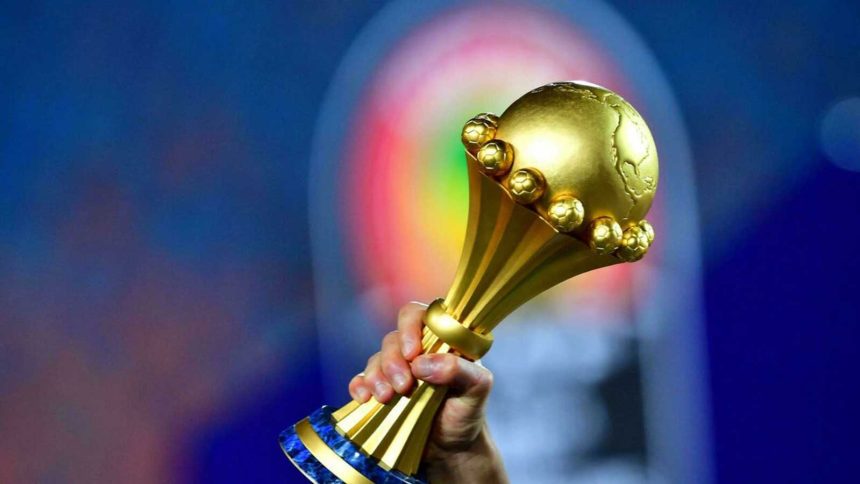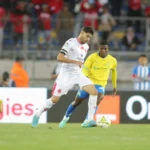The Africa Cup of Nations (AFCON) is set to kick off in Ivory Coast this Saturday, featuring a fierce competition for the title, led by Morocco, the first African team to reach the World Cup semi-finals.
Defending champions Senegal and the host nation Ivory Coast are also strong contenders.
The 34th edition of the tournament, the premier football event in the continent, begins in the midst of a crowded European schedule, sparking renewed criticism from elite European club coaches.
The timing of the championship, held every two years, has always been a subject of significant debate.
Some European-based stars have already joined their national teams after last weekend’s club matches, including Egypt’s Mohamed Salah (Liverpool), Morocco’s Achraf Hakimi (Paris Saint-Germain), and Nigeria’s Victor Osimhen (Napoli).
Cameroon goalkeeper André Onana (Manchester United) is expected to join the team late, on the eve of their opening match, after an agreement to play his club match against Tottenham on Sunday.
While top-tier players participate, the tournament will miss figures like Cameroon striker Eric Maxim Choupo-Moting (Bayern Munich), Ivorian forward Wilfried Zaha (Galatasaray), and his compatriot, defender Eric Bailly (Besiktas), due to tactical decisions, and Bayer Leverkusen’s striker, Patrik Schick, is sidelined due to injury.
The 24 teams have arrived in Cameroon, settling across five cities, including Abidjan and its two stadiums, the political capital Yaoundé, the coastal city of San Pedro (southwest), and Kouhogo (north).
President Hassan Wattara’s government has demonstrated its readiness to invest approximately $1.5 billion to ensure the success of the event.
In addition to the six newly built or renovated stadiums, roads, bridges, hotels, and AFCON villages for team accommodation have been constructed.
From the moment teams arrive at Felix Houphouet-Boigny Airport in Abidjan, they are greeted with traditional dancers performing local dances and songs, creating an atmosphere of enthusiasm and joy.
Throughout the city, flags of Ivory Coast and jerseys of the national team, nicknamed “The Elephants,” adorn every corner, reflecting the nation’s excitement.
Moroccan Ambition
After achieving a remarkable fourth place in the 2022 World Cup, becoming the first African country to reach the semi-finals, Morocco’s players are now eager to translate their global success into continental triumph, putting an end to a 48-year wait for their second AFCON title.
Despite boasting a significant array of stars scattered across Europe, the “Atlas Lions” have not lived up to expectations in continental finals, with their best achievement being the 1976 title and finishing as runners-up in 2004.
The 13th-ranked team globally, Morocco enters the tournament as a strong candidate for the title.
The team hasn’t reached the semi-finals since losing to the host Tunisia in the 2004 final, despite consistently featuring a squad of professionals.
Coach Walid Regragui stated, “I told the players that we cannot be kings of the world if we are not kings of our continent.”
Morocco’s squad features a formidable lineup in all positions, including goalkeeper Yassine Bounou (Al Hilal Saudi Arabia), defenders Roman Saiss (Al Shabab Saudi Arabia) and Hakimi, midfielders Sofiane Amrabat (Manchester United) and Aziz Nouri (Marseille), and forwards Youssef En-Nesyri (Sevilla) and Hakim Ziyech (Galatasaray).
Senegal and Breaking the Curse
Senegal is experiencing its golden age in football across all levels.
The senior national team clinched the 2021 Africa Cup of Nations in Cameroon (early 2022) and secured a spot in the 2022 World Cup.
Additionally, the local team won the Africa Cup in Algeria (February 2023), followed by the youth team (under 20) winning the Africa Cup in Egypt (March 2023).
In addition to facing traditional African powerhouses such as Egypt, Cameroon, Ghana, Nigeria, Ivory Coast, Morocco, Tunisia, and Algeria, “The Teranga Lions” face a particular challenge in breaking the jinx of the last six defending champions failing to advance beyond the Round of 16.
None of them has progressed further, presenting a significant challenge for coach Aliou Cisse’s team.
The presence of forwards Sadio Mane (Al Nassr Saudi Arabia) and Krepin Diatta (Club Brugge), goalkeeper Edouard Mendy (Al Ahly Saudi Arabia), and striker Nicolas Jackson (Chelsea) highlights Senegal’s ambitions for consecutive titles.
Host Nation Ivory Coast and the “Host’s Curse”?
No team has won the AFCON title at home since Egypt in 2006, prompting countries with modest footballing stature to host the finals, such as Angola, Gabon, and Equatorial Guinea.
The “Elephants,” armed with attacking and midfield stars, aim to break this curse to secure their third title after 1992 and 2015.
To achieve continental glory, Ivory Coast relies on talents like Sebastian Haller (Borussia Dortmund), Seko Fofana (Al Nassr Saudi Arabia), and Franck Kessie (Al Ahly Saudi Arabia), whose images flood the streets of the capital.
Alongside these three teams, Tunisia, South Africa, and Ghana are considered strong contenders on paper.
Beyond the title race, attention will also be on several teams that could play the role of dark horses, including Burkina Faso and Equatorial Guinea.
Meanwhile, five teams, including Mozambique, Mauritania, Guinea-Bissau, Namibia, and Tanzania, continue their quest for their first AFCON victory, despite multiple participations.











